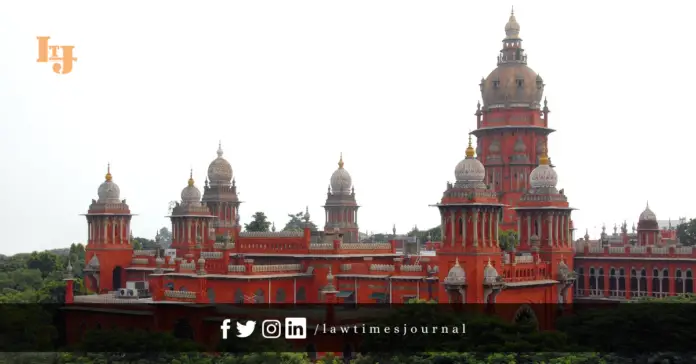
Justices N Kirubakaran and Abdul Quddhose of the Madras High Court on Thursday issued a slew of directions while ordering the government to crack down on drunken driving, in line with the provisions of the Motor Vehicles Act and Rules, as well as the Indian Penal Code.
Prior Facts:
The Court was dealing with a case filed to enhance compensation payable to a man who was paralysed on account of a road accident caused by a drunker lorry driver. On an appreciation of the facts before it, the Court ordered that the compensation payable be enhanced from Rs.4, 37,920/- to Rs.67, 35,000/- along with interest.
Key Features:
- Court has suggested that the State consider directing manufacturers to install Alcohol Sensing Ignition Interlocking Devices in vehicles, as part of these efforts.
- The Bench has ordered that a report be filed giving the details of number of cases filed for drunken driving and the number of persons arrested every calendar month, in the first week of the succeeding month.
- The Court passed the order after commenting extensively on the havoc cause by drunken driving in the country.
- The Bench observed that, “Every day, it takes away life of very many people”.
- The Court also added that, “The police should not take advantage of the directions given and harass motorists for this unjust enrichment”.
- The Court added a word of caution that this order ought not to be misinterpreted to unduly harass motorists.
Judgement:
The Court while passing the said order stated that, “When thousands of fellow citizens are being killed due to drunken driving, this Court cannot remain a silent spectator with folded hands and this Court has to travel beyond its jurisdiction to pass novel, unconventional and remedial directions as a Constitutional Court to protect fundamental rights of citizens in the interest of the society. In spite of grim situation, if this Court shirks its responsibilities, it would be injustice done to the society by this Constitutional Court, apart from being incapable of implementing the provisions of Motor Vehicles Act.”
The Court while passing the direction on drunken driving held that, “Though the issue before this Court is with regard to quantum of compensation awarded to the appellant, the issue about drunken driving arises for consideration as contended by the Insurance Company. This Court cannot close its eyes and mechanically decide the quantum of compensation alone without addressing the main cause for the accident and consequently this case”.
The Court after directing various Union Ministries and State departments concerned, it issued the following directions for compliance:
- The respondent’s police authorities shall arrest the drunken drivers under Section 202 of the Motor Vehicles Act and subject the drivers for Breathalyser Test under Section 203 of the Motor Vehicles Act for alcohol detection as per Section 185 of the Motor Vehicles Act.
- The respondents shall make available the sufficient number of Breathalysers to the police.
- The police authorities shall invoke Section 279 of the IPC for the offence of drunken driving in addition to Section 185 of Motor Vehicles Act.
- The State transport authorities shall revoke the licence under Section 19(1) (f) of the Motor Vehicles Act for drunken driving.
- The State transport authorities shall invoke Rule 21(16) of the Central Motor Vehicles Rules, 1989 to disqualify the drunken drivers from holding driving licence.
- The respondents shall seize/take custody of vehicles of drunk drivers as per Section 202(3) of Motor Vehicles Act.
- The respondents shall constitute special committed units/wings to check drunken driving.
- The respondents shall invoke Section 185 of the Motor Vehicles Act along with other IPC offences in cases of accidents involving drunken driving.
- The Central Government shall consider the suggestion to direct the automobile manufacturers to install “Alcohol Sensing Ignition Interlocking Devices”.
- The respondents shall conduct mass media campaign against drunken driving regularly roping in celebrities like political leaders, cine stars, sports persons etc., including sensitisation of people, especially college students through short films, dramas and pamphlets about the dangerous consequences of drunken driving.
The matter has been listed to be taken up next on April 6.
Edited by J. Madonna Jephi
Approved & Published – Sakshi Raje








